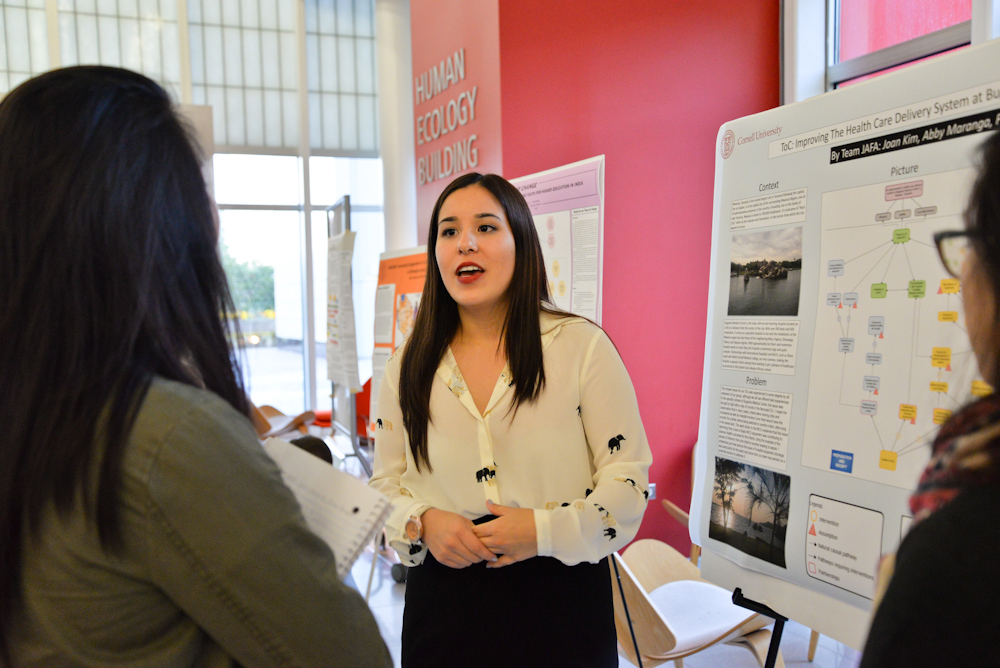Students showcase global health fieldwork
By Michelle Yang

At the first ever Global Health Experiential Learning Symposium, 44 students pursuing the global health minor presented their international service learning and research fieldwork via poster boards Oct. 16 in the Martha Van Rensselaer Commons.
Service-learning projects and research topics from the Dominican Republic, Ethiopia, Ghana, Haiti, India, Mexico, Morocco, Nepal, Peru, Philippines, Tanzania and Zambia were shared with the Cornell community at this inaugural event. Eleven student collaborators from the Universidad Autónoma de Santo Domingo, Dominican Republic, also participated.
Their fieldwork focused on a wide array of health and societal topics, from female genital mutilation to albinism. These experiences all occurred as part of the Experiential Learning Opportunity (ELO) requirement of Cornell’s global health minor.
Sisi Peng ’16 spent her time in Tanzania working with healthcare providers at Majengo Health Centre to introduce a pilot intervention program that seeks to increase exclusive breastfeeding rates in that region, which positively supports an infant’s health, growth, and development.
“The prevalence is very low in terms of exclusively breastfeeding for the first six months,” Peng said. Instead, mothers tend to feed their infants water, porridge and banana soup, a diet that erodes infant digestive systems.
Peng reviewed literature on effective breastfeeding interventions in other developing regions and collaborated with a doctoral student who studied exclusive breastfeeding. Their research concluded that the clinic should offer antenatal care education classes on exclusive breastfeeding and introduce lactation consulting to best support new mothers and encourage them to exclusively breastfeed infants.
Vivian Montes ’16, Douglas Donnelly ’16 and Ilana Porges ’16 worked on a case study called “Albinism as a Risk Factor for Squamous Cell Carcinoma” in Moshi, Tanzania over summer 2015. People with albinism face health barriers, shorter life expectancy and high risk of squamous cell carcinoma, alongside social barriers such as stigma and superstition that triggers heavy persecution and mistreatment. The students worked in the Kilimanjaro region at a university hospital dermatology training center, which has educated the public about albinism using mobile health clinics.
Lucy Shephard ’17 volunteered in Ghana for Unite for Sight, a nonprofit organization that strives to improve eye health in developing countries. Shephard worked in Ghanaian eye clinics, where a surgical team that performed eye surgeries without charge, and participated in outreach to villages with poor populations.
Throughout the Global Health Experiential Learning Symposium, students conversed about the issues in their region of study, and innovative actions toward improvement; all encompassed under the theme of experiential learning.The event was sponsored by the Global Health Program in the College of Human Ecology.
Michelle Yang '18 is a writer intern for the Cornell Chronicle.
Media Contact
Get Cornell news delivered right to your inbox.
Subscribe